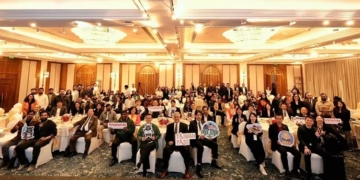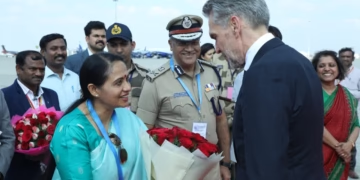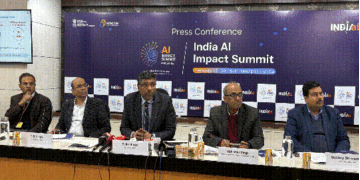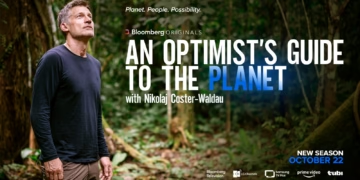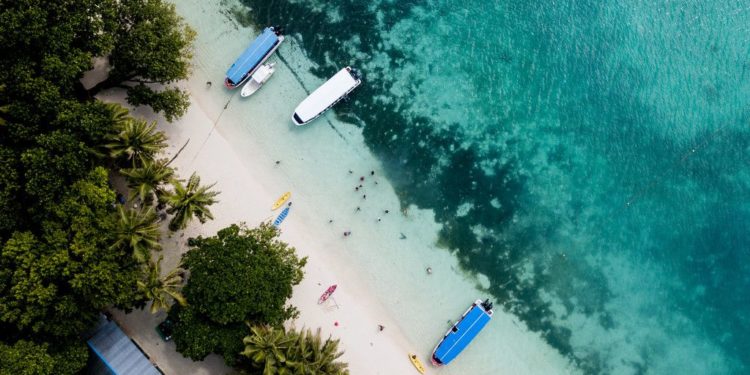NADI, FIJI (4 May 2019) — Climate change is not a distant or imaginary threat, but an undeniable reality. This is particularly true in Asia and the Pacific. At the 52nd Annual Meeting of the Asian Development Bank’s (ADB) Board of Governors in Fiji, a panel of experts organized by the ADB Independent Evaluation Department discussed the urgency to manage natural resources and mitigate vulnerabilities as the only way to achieve sustainable development in Asia and the Pacific.
The expert panel, drawn from international organizations, the development community, and research and academia, presented the latest perspectives on the region’s heightened vulnerability to these risks, and how to reduce its exposure to them. From different angles, the experts agreed that moving forward on addressing vulnerabilities and managing natural resources will require an all-hands effort at the global, regional, country, and local levels to achieve the Sustainable Development Goals (SDGs).
Climate change, the rapid depletion of natural resources, and worsening environmental degradation are markedly increasing the vulnerability of populations that are least able to adapt. Asia and the Pacific has a particularly high exposure to these changing circumstances. From 2000 to 2018, 84% of the 206 million people affected by weather and other disasters globally on average each year were from the region.
“Further gains in human development and human security are put at risk by the pace of environmental degradation and climate change. Greater heat stress, the spread of mosquito-borne diseases to higher altitudes, food and water insecurity, and greater exposure to climate-related disasters are all consequences of the world’s unsustainable development, and will make it harder to reach the SDGs,” noted former United Nations Development Programme Administrator and former New Zealand Prime Minister Ms. Helen Clark.
A rising concern is whether the progress made in reducing poverty in the region can be sustained as these risks intensify. The constraints to growth arising from climate change need to be recognized. “The time has come to rethink how growth and development performance are measured, taking into account the depletion of natural capital and their associated consequences,” said Visiting Professor at the National University of Singapore Mr. Vinod Thomas.
By holding the Annual Meeting in Fiji, ADB has helped highlight the extreme threat that Pacific small island countries face from climate change, environmental degradation, and natural disasters. Although Pacific small island countries have tiny carbon footprints, the economic costs of climate-related disasters are among the highest in the world in these countries. These and other disasters equaled 7% of gross domestic product (GDP) from 2000–2018 in Pacific countries, far higher than in the subregions of Asia, which range from under 1% in East Asia to 6% in South Asia. Among the highly destructive climate-related events were the 2016 Cyclone Winston in Fiji causing estimated losses of 31% of GDP, and the 2017 Cyclone Pam in Vanuatu causing damage of around 64% of GDP.
“With rapidly aggravating climate risks, the region needs disruptive change to tap financial and human resources that can be deployed to build resilience and prevention. The menu of options include disaster proofing all projects, pooling financial risks across the islands and the region, scaling up catastrophe bonds and debt draw-down options as well as deploying rapid assessments and the use of big data for greater preparedness,” said Mr. Thomas.
Governments, the private sector, communities, and development partners will need to pool their technical, financial, and human resources to build up the resilience of Pacific island countries to the catastrophic risk of climate change. “Partnerships are crucial. Driving multi-stakeholder partnerships for resilient development to combine resources and expertise to deliver on the aspiration of the countries and sustainable development goals is very important for the Pacific,” said the Secretary General of the Pacific Islands Forum Ms. Dame Meg Taylor. Ms. Taylor emphasized that “it is important for countries to be aware of the agenda of donors, and that in all circumstances countries’ priorities should always prevail. In the Pacific nobody is packing up and leaving. For us, it’s an existential matter and we are determined to do what it is needed.”
Multilateral development banks (MDBs) are likewise critical in helping countries mitigate climate change and the other emerging development challenges that they face. “MDBs like ADB can play an important role in supporting countries to mobilize finance, harness knowledge, and tap strategic partnerships in order to meet their commitments to the SDGs. They can provide different financing products to enhance bankability and sustainability of investments. They can tap into their extensive experiences developing projects to promote tried-and-tested solutions and pilot innovative approaches. They can also leverage their networks with other development actors to develop effective regional and country-specific solutions,” said the Director General of ADB’s Sustainable Development and Climate Change Department Mr. Woochong Um.
“ADB is committed to help countries fight climate change,” said Mr. Um. ADB aims to invest $80 billion to fight climate change from 2019 to 2030. ADB expects that at least 75% of its operations will support climate change adaption and mitigation by 2030. In alignment with major global commitments, ADB is investing in resilient and empowered communities, cleaner technology, livable cities, and green infrastructure to support its developing member countries’ transition into low carbon and climate-resilient economies.
The concern for addressing climate change and vulnerabilities extends beyond the region and requires a concerted global effort. In a call for action by the global community, Ms. Clark said: “Currently, there is insufficient commitment to climate change mitigation to reach the Paris Climate Agreement target of keeping global warming under a 1.5 °C rise. With stronger political leadership, that can change. The Nationally Determined Contributions need to become more ambitious.”
Economic performance in Asia and the Pacific has been strong but the road ahead remains challenging. “The risks posed by the depletion of natural capital through environmental degradation and disasters remain high,” said the Director General of Independent Evaluation at ADB Mr. Marvin Taylor-Dormond. “The inability to address them could derail the path to sustained progress. Achieving this will necessitate coordinated action at all levels—local, country, regional and global—and from all stakeholders, including governments, private sector, communities, and development partners. It will also require rigorous evidence-based measurement of progress made to keep us all on track, as well as to find a way to incorporate climate change and environmental degradation externalities to national income accounting.”




